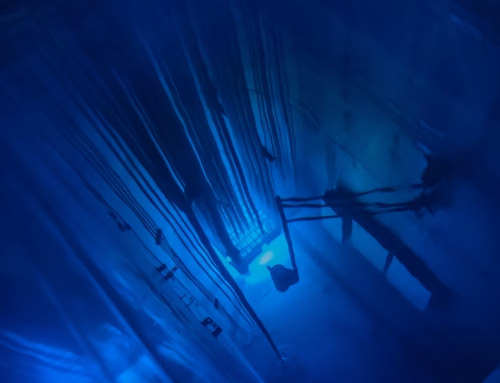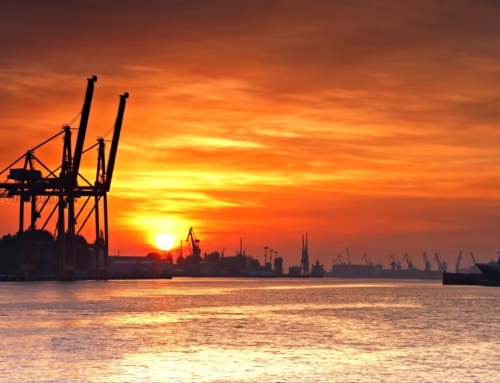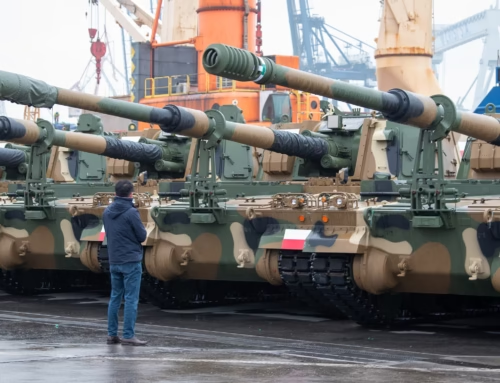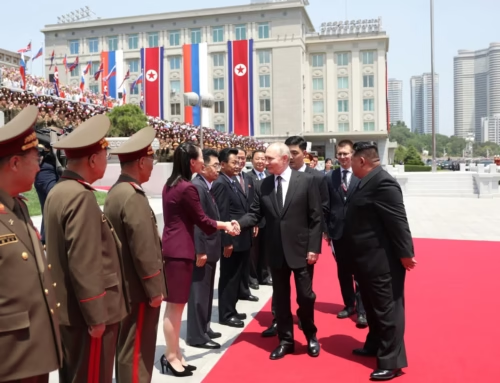Taiwan-Zolnierze
Autor foto: Courtesy of the Military News Agency, Ministry of National Defense, Republic of China



Taiwan-Zolnierze
Autor foto: Courtesy of the Military News Agency, Ministry of National Defense, Republic of China
War in Ukraine: Lessons for Taiwan and the PRC
Autor: Robert Czulda
Opublikowano: 22 maja, 2023
Pulaski Policy Paper no 24, May 22, 2023
Introduction
During the early stages of the war, some were worried that Russia’s aggression against Ukraine could lead to a similar attack on Taiwan by China. This argument was not unfounded, as a quick Russian victory could embolden China to launch an attack on Taiwan, while a prolonged conflict in Europe could prevent the United States from deploying more forces to the Indo-Pacific.
Although the situation ultimately played out differently, with Russian forces being pushed back and no significant threat to NATO’s territory, most likely decision-makers in both the PRC and Taiwan closely monitored the conflict in Ukraine, including its political and military developments. As Colin Kahl, the US Undersecretary for Defense for Policy, stated last year, the conflict in Ukraine serves as a reminder of the need for countries to remain vigilant and prepared for potential threats. He added: “If I’m sitting in Beijing, I think the fundamental question to draw is if they were to commit an act of aggression sometime in the future, will the world react the way that it did when China snuffed out democracy in Hong Kong, or will the world react more like they did in the case of Ukraine”.i
Similarities and differences
Undoubtedly, the issue of Taiwan and China significantly differs from the situation in Ukraine and Russia – suffice it to mention different geographic, economic, and political conditions. Nevertheless, a number of similarities can be identified. Firstly, both states, Taiwan and Ukraine, are much smaller – territorially, economically, and demographically – than their bullies. Moreover, they both have to deal with a powerful opponent driven by a mix of superiority/inferiority complex and a strong feeling of humiliation.
Both Taiwan and Ukraine have been victims of non-military hostile operations, known by various names such as propaganda warfare, soft warfare, subversive operations, or – in the case of Taiwan – cognitive warfare. They have both suffered from strategic isolation – they have partners, but at the same time, they lack defence allies and are outside collective security arrangements. Furthermore, both countries are fighting for their survival – once captured by their enemies, there is no real chance to recapture the territory.
Unlike the Russia-Ukraine case, the PRC has no land connection with Taiwan for obvious reasons. This would create significant challenges both during the initial phase, such as a direct attack, as later on (reinforcement, evacuation, etc.). Additionally, Taiwan’s major cities are located on the west coast, which would increase the necessity to conduct difficult fights in urban areas.
Thirdly, it seems that while a part of Ukrainian society was tricked into supporting Russia’s direct intervention in Ukrainian domestic matters, there is no serious support for any form of „people’s republic” in Taiwan. However, this does not mean that the PRC cannot try to exploit local tensions and divisions, as well as social and economic difficulties, to its advantage. This could include, for instance, divisions between indigenous people with a combined population of roughly 580 thousand (2.5% of population) and the ethnic Han majority.iiPro-China and anti-US groups, including supporters of parties such as the pro-reunification New Party, could be also used as a tool.iii
It appears that there is a significant difference in mentality and goals between the PRC and Russia. While the Kremlin does not care about human losses – on either the Russian or Ukrainian side (including civilian casualties) – and easily destroys cities, Beijing emphasises the primacy of „peaceful reunification”. In other words, the PRC wants to acquire Taiwan, not destroy it.
Lesson learnt
Previously mentioned Colin Kahl identified four fundamental takeaways for China from the Russian aggression against Ukraine. Firstly, China was taken aback by the high quality of Western intelligence, while their own intelligence failed to anticipate the invasion. Secondly, China was surprised by the effectiveness of the United States and other Western democracies in the information domain. Thirdly, spending a large amount of money on military modernization and transformation does not necessarily result in efficient warfighting capabilities – China’s capabilities in this regard remain a mystery, particularly in a difficult joint operation that would require the use of multiple units of different branches of the armed forces for an extended period. Fourthly, China was „likely surprised” by how the advanced economies around the world, not just in Europe, responded with sanctions and export controls.iv
The Russian aggression against Ukraine has made it clear that there are no short wars or quick victories. Any aggressor must be prepared for a long war of attrition, which, as previously mentioned, is significantly more difficult if there is no direct land connection between the aggressor and the battlefield. Taiwan’s military strength is around 170,000 troops,vand an aggressor would have to use at least twice as many in assault units to break their defence.
Additionally, any aggressor must expect some reaction from the international community. However, it can be argued that punishing Russia with sanctions was relatively easier than doing the same with the PRC (although the latter seems to be more vulnerable to economic problems). An important lesson from the Russian aggression against Ukraine is that intelligence and early warning are key, and any surprise attack on a large scale is very difficult. Taiwan would have some time to prepare its defence.
Another key to a successful military operation is proper material and intelligence support. Taiwan must ensure cooperation with partners in this regard and prepare infrastructure, including ports and airfields. This also means that further efforts are required, and Taiwan must continue to boost its defence capabilities, including in the mental sphere. The morale of the people and the armed forces is a crucial element of success.
Summary
While there are significant differences between the situations involving the PRC and Taiwan versus Russia and Ukraine, there are also some similarities. The Russian aggression against Ukraine has highlighted the importance of efficient warfighting capabilities and long-term strategies instead of short wars and swift victories. Intelligence and the information domain have also been shown to be crucial factors.
The Crimea case may be particularly concerning – its annexation by Russia and a lack of a decisive international response increases a risk that at some point the PRC may act similarly and instead of striking Taiwan, it may decide to occupy one or several Taiwanese islands. In such a scenario, the likelihood of an international reaction is low. Moreover, a significant risk for Taiwan is the fact that a war-weary West will be less willing to engage in supporting Taiwan in the near future.
The Russian aggression against Ukraine also provides a series of specific conclusions and policy recommendations for Taiwan:
Strengthen intelligence capabilities: To avoid any strategic surprises, it is important to enhance intelligence and early warning capabilities to better predict and respond to potential threats.
Develop effective information strategies: A success of Western democracies in the information domain during the conflict between Russia and Ukraine highlights a significance of developing effective information strategies to counter propaganda and disinformation.
Invest in a diverse range of military capabilities. It is important to invest in a diverse range of military capabilities to effectively work together in a prolonged, combined operation.
Build alliances and partnerships. Both Ukraine and Taiwan have suffered from strategic solitude, lacking defence allies and being outside collective security arrangements. Building alliances and partnerships with other countries – such as Japan, India, or the Philippines – can help provide support and protection in times of crisis. However, due to Taiwan’s political situation, this is particularly difficult.
Prioritise long-term planning and preparation. The Russian aggression against Ukraine illustrates the importance of being prepared for a long war of attrition. Therefore, prioritising long-term planning and preparation can help ensure readiness and resilience in the face of potential threats.
Morale is a key to victory or an easy path to defeat. The key element is the people’s and armed forces’ willingness to defend their own state and independence. Taiwan must continue its efforts to build its own identity, credibility, and strengthen a conviction in its society that defending their own country is an important cause.
Author: Robert Czulda, Resident Fellow Casimir Pulaski Foundation
Supported by a grant from the Open Society Initiative for Europe within the Open Society Foundations
i Wang Qi and Hu Yuwei, “’Get out!’ Civic groups, politicians, industry representatives in Taiwan protest Pelosi’s visit”, Global Times, August 2, 2022, https://www.globaltimes.cn/page/202208/1272052.shtml.
ii Erich Cheung, “As Taiwan embraces its Indigenous people, it rebuffs China”, CNN, March 18, 2023, https://edition.cnn.com/2023/03/18/asia/taiwan-indigenous-groups-significance-china-tensions-intl-hnk-dst/index.html.
iii Aaron Mehta, „4 lessons China should take from Ukraine: Pentagon policy chief”, Breaking Defense, June 14, 2022, https://breakingdefense.com/2022/06/4-lessons-china-should-take-from-ukraine-pentagon-policy-chief.
iv Aaron Mehta, „4 lessons China should take from Ukraine: Pentagon policy chief”, Breaking Defense, June 14, 2022, https://breakingdefense.com/2022/06/4-lessons-china-should-take-from-ukraine-pentagon-policy-chief.
v Alisha Rahaman Sarkar, „China vs Taiwan: How do the two rivals’ military forces compare?”, The Independent, April 13, 2023, https://www.independent.co.uk/asia/east-asia/china-taiwan-military-strength-comparison-b2318894.html.






